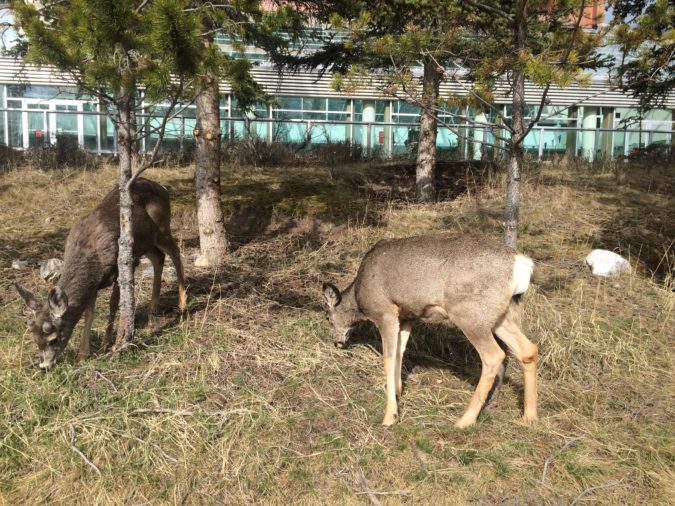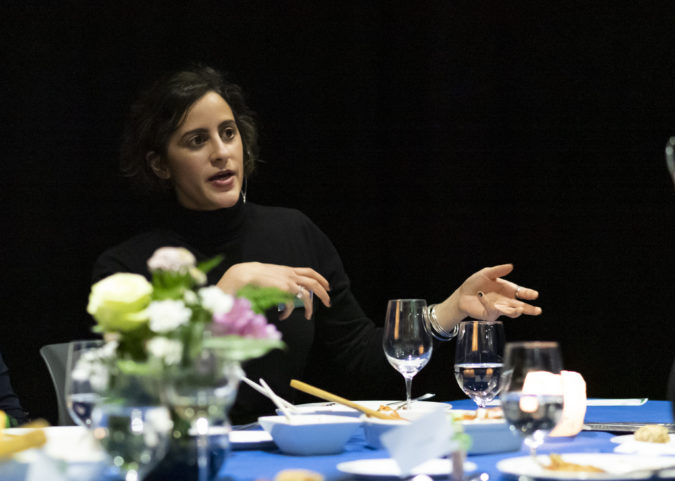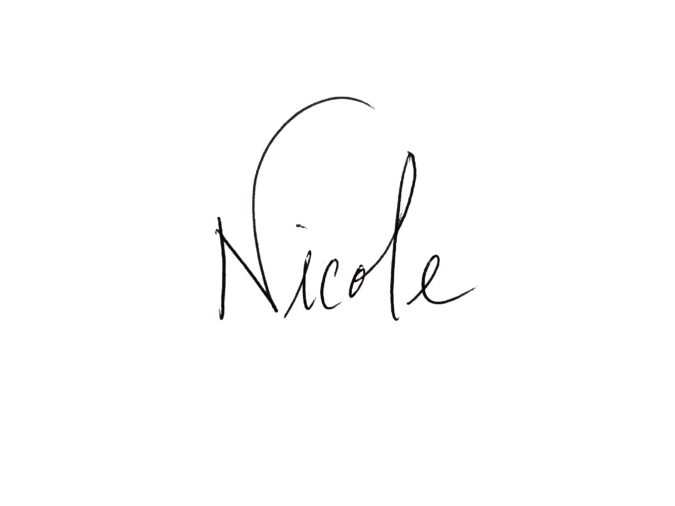Field Notes from Nicole Ebert
May 09, 2019


Photo credits: Nicole Ebert (unless otherwise noted)
Field Notes from Nicole Ebert — PuSh Festival Corporate & Foundation Giving Officer
I am fresh from the mountains and If I close my eyes I can still evoke an image of the stunning snow-capped mountains of Alberta. The Banff Centre for Arts and Creativity is nestled mid-way up Tunnel Mountain on Treaty 7 Territory — the sacred and traditional lands for the Stoney Nakoda, Blackfoot, and Tsuut’ina Nations. I attended a conference led by the Calgary Chapter of the Association of Fundraising Professionals. What were the key takeaways? Bees and Philanthropy.
The opening keynote speaker, Jay Frost, a fundraising expert from the States, began by comparing colony collapse disorder in bees to a decline in philanthropy across North America over the past fifty years. It may seem like a dramatic connection to make at first, but as he unravelled this metaphor, I was struck with how deeply destabilizing and devastating these effects could be, and likely already have been on society.
I considered recent research on social isolation in Vancouver, in particular a 2017 study by the Vancouver Foundation that noted declining levels of community participation as a potential contributing factor in increased feelings of loneliness. When I consider that paired with the general downward trend in donor numbers, I was struck by the stakes. As Frost said, “If we lose donors, we no longer have people that are supporting the fabric of our community.”
Over and over again, delegates at the conference shared stories of the way their parents or grandparents contributed to the community. “It was just something people always did back then, and because of that, everyone knew each other better.” I often worry if digital technology has further isolated us and affirmed a desire for individual recognition over genuine engagement or collaboration. The less we contribute to the community, the further we risk isolating ourselves and losing valuable resources that serve the greater good of all in society.
In one particularly memorable session, we were asked a few questions: Do you volunteer or donate to a charity? Yes, I’m a Board Member for the Dusty Flower Pot Cabaret Society and I donate to a couple different organizations. Do you consider yourself a philanthropist? Oh well, I don’t have a lot of money to donate so … no.
Nearly everyone in the room answered yes to the question about contributing to charity, but to the question about whether we consider ourselves philanthropists, nearly everyone responded no. This begged the question: What IS a philanthropist? One of the few people who had answered yes quickly chimed in: The guiding principles of philanthropy are of providing time, talent, or treasure.
Suddenly it struck me, I am a philanthropist, and likely, so are you. Is it possible that that philanthropy is not exclusive to the wealthy and traditionally older population?
And also, what do bees have to do with philanthropy? For one thing, all of us rely on bees to pollinate our food crops. However, we may be less aware of just how much we rely on philanthropy to sustain and support the cultural economy of our city.

I left the conference feeling immensely grateful to be a part of a community of not-for-profit fundraisers who approach their work earnestly, creatively and fearlessly. My biggest take away though, aside from a pack of (bee-loving) wildflower seeds that were given out to attendees, was the burning question: What can I do to cultivate a culture of philanthropy not only in myself, but in my family and broader communities?
My nephew’s birthday is coming up, he’ll be turning seven. Instead of giving him a twenty folded in a card, I’ve decided to give him a challenge: Give that twenty dollars away. Maybe that’s a cruel aunt move to pull, but perhaps there is a deeper lesson, one that can’t be bought and that without him learning, could have a devastating impact on society.
When research on colony collapse disorder in bees first came to light, people were quick to respond by lobbying against the use of harmful pesticides. Now that we know philanthropy has been on the decline for half a century, will we allow the not-for-profits that support the “cultural biodiversity” of our society to continue to collapse? Or will we actively seek new solutions and find ways to cultivate a culture that supports and sustains community?
As a seasoned farmer (true story), I can’t bare to imagine a world without bees. As an fundraiser and an artist, I equally cannot bare to imagine a world without philanthropists? Can you?

In less than a month, Franco Boni will be joining us as Executive & Artistic Director. His work as a philanthropist has had an immense impact on the Toronto landscape for two decades. I am curious and excited about what seeds he will bring with him to plant as he lays roots in Vancouver, and I imagine you are too. I look forward to the journey ahead for all of us, and of course, for the bees.

Photo credit: Gabriel Martins
Kind regards,

Nicole thank you for sharing your eloquent thoughts and moments of authentic learnings. It was a pleasure to meet you and I wish you only a brilliant career ahead.
Sincerely,
Val
(your nephew is a lucky boy, I look forward to the next step)